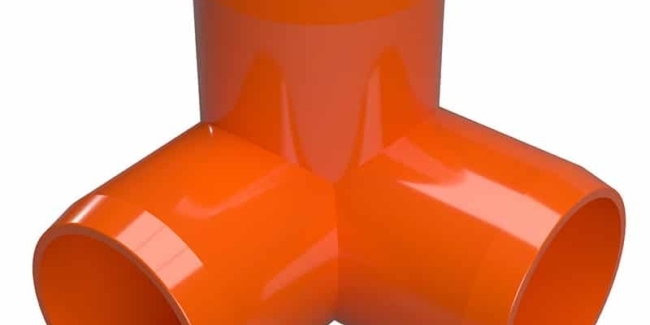Plastic Mouldings

Plastic Mouldings
Advanced Seals & Gaskets Ltd are able to supply moulded components produced using numerous types of plastics, available in numerous grades, colours and thicknesses, one of which includes a variety of PVC plastics or polyvinyl chloride - which is recognised as one the most popular engineering plastics. PVC plastic mouldings are generally bespoke shapes often with complex profiles, a ribbed/textured finish or which may require a lip or curved edge - for these reasons mouldings can not simply be pressed from sheet material and require specialist machinery.
All our plastic mouldings are made to order and are produced using a combination of a sample or drawings provided by our customers, from which a tool or moulded cavity can be made. PVC plastic mouldings can be taken in an endless number forms for example feet, buttons, housings and cases,screws, combs, tubes and o-rings to name a few, all designed to provide protection, prevent the leakage or ingress of air, fluid or gas and to be aesthetically pleasing.
Product Enquiry
For information on Plastic Mouldings please complete the following quick enquiry or call us on +44(0)1384 252555.
Characteristics of PVC Plastic:
Colours: black/white/transparent as standard - but others can be made to order
Finish: opaque, transparent
Thicknesses: 1mm - 20mm
Sheet Size: 2m x 1m (standard - can be cut down or produced as moulded profiles)
Heat Resistance: up to 70° C
Resistances: Excellent chemical resistance, corrosion, weather resistance, electrically insulating
Flammability: self-extinguishing (when removed from the source)
Full technical data can be supplied upon request,
or downloaded from our online portal.
What are PVC Plastic Mouldings?
Polyvinyl chloride or PVC plastics are highly durable and as the material is a thermoplastic, they can be melted over and over again, and when cooled down back to a solid state in it’s new shape or form. Even moulded products can be melted and reformed into a completely different product. The 3 main moulding techniques used are Injection, Compression and Transfer, each one uses raw molten PVC plastic compound and a mould (die) in which the moulded profile is formed and cured.
INJECTION MOULDING
Injection moulding is the process by which raw/uncured plastic material is loaded into a hopper or holding unit where it is heated to a molten state and then fed through a nozzle in pre-measured quantities into the mould/cavity. Pressure and heat levels are adjusted within the cavity causing the material to ‘cure’ and the moulded product is formed.
COMPRESSION MOULDING
Compression moulding is made up of a top and bottom pre-heated steel mould/cavity into which raw material is poured in and the two halves are closed together. This tool is heated in order to melt the neoprene compound creating the desired shape and the final product. Although this process is great for bespoke moulding, it can be very time consuming for high volume production.
TRANSFER MOULDING
The transfer moulding process is the more complex of the three. The raw/uncured material or charge is loaded into the transfer pot, this pot is then heated as a plunger slowly enters the pot building pressure, forcing the melted rubber through the sprue or channel.The sprue leads to the mould cavity, this cavity is then filled with the melted rubber material forming the desired shape of the component. Once the raw material has cured, the moulding too can be opened and the formed part removed.
Why use PVC Plastic Moulding?
PVC plastics are all manufactured using different compounds in order to produce a product with specific properties. PVC Plastic mouldings are ideal for customers looking for a non-standard profile to fit specific applications, the process of producing a moulded part means the customer is guaranteed to have an identical product each time, which is essential for high volume production and assembly.
PVC plastic is extremely workable and will hold it’s shape even during vigorous milling and sawing processes. It is highly chemically stable and offers excellent compressive strength and electrical insulation properties, available in a range of colours which can be very transparent or opaque. A few of the applications in which PVC plastic moulded components can be found used include, chemical or acid tanks, cladding, electrical cases and as cut or parts used within machinery and electrical equipment.
Other Types of Plastic Available
Advanced Seals & Gaskets work with a multitude of material manufacturers and suppliers, giving our customers more choice of plastic sheeting - our most popular materials being:
- PTFE
- Polycarbonate
- Polypropylene
- HIPS (High Impact Polystyrene)
- ABS
- Polyester
- Acetal
- Acrylic
- Nylatron
Benefits of Using PVC Plastic
- Cost-effective
- Impact, corrosion, abrasion and weather resistant
- High chemical resistance
- Strong and rigid
- Can be easily machined, heated and bent, glued and moulded
- low heat and electricity conductivity for use with electrical insulation
Advantages of Using PVC Plastic Moldings
By working with a network of material manufacturers, ASG have the ability to offer a multitude of plastic mouldings suitable for use in virtually any industry. As all plastic mouldings are made to order, we can help with the design, material choice, produce samples for testing ensuring perfectly fitting moulded profiles for your applications. PVC plastic mouldings are some of the world's most commonly used products, this is due to the vast range of advantages and desirable properties the material offers.
The material itself is strong, rigid and lightweight, offering durability and longevity as PVC plastic is resistant to chemical and weather corrosion, shock and abrasion which means it can be utilised for many indoor and outdoor applications.PVC plastic mouldings are non-toxic, do not conduct electricity so can be used for electrical applications and although PVC plastic will burn, it is self-extinguishing due to having a high chlorine content. Moulded PVC plastics can be used in the form of seals, washers, casings, toys, pipes, tubes, containers and much more.
Please contact us using the form below or by calling us on +44(0)1384 252555.





















